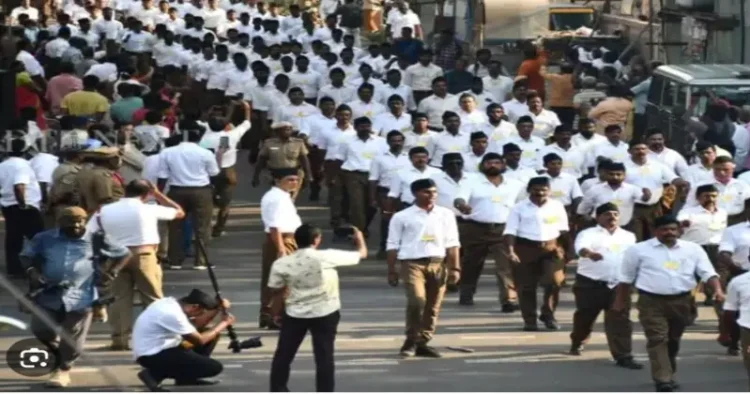Similar to the previous year, the RSS aimed to conduct its annual route marches in Tamil Nadu, commemorating the 99th foundation year of the RSS, celebrating the 200th birth anniversary of Saint Ramalinga Swamigal (Vadalur Vallalar), and honouring the nationalistic ideas of Swami Vivekanandar and B.R. Ambedkar.
The Madras High Court, on October 16, directed the police to grant permission for the RSS route marches on October 22 and 29, following a batch of petitions filed by RSS leaders. However, instead of complying with the court order, the DMK government challenged the decision in the Supreme Court, contesting the Madurai Bench of the Madras High Court’s approval for the RSS to conduct flag marches in the state. On November 1, the Madras High Court issued statutory notices to key officials, including Home Secretary P. Amudha and Director General of Police (DGP) Shankar Jiwal, in connection with contempt petitions filed for not granting permission to the RSS route marches.
In response to the Supreme Court’s intervention and order, the DMK government eventually agreed to grant permission for the route march and requested the RSS to propose two possible dates. Subsequently, November 19 was finalized, and the police granted permission for the event.
The route marches unfolded in 53 locations across Tamil Nadu, with the remaining two taking place in Puducherry and Karaikal last month. The marches proceeded peacefully, with active participation and support from the public. Despite drizzles in some areas, the sevaks (volunteers) briskly walked through the routes.
However, the joy of a successful pathasanchalan (route march) was short-lived, as the DMK government surprised organisers by filing cases against some of them. Reports indicate that police have booked organisers in three districts for alleged violations during the route marches. Cases were registered against organisers in Tenkasi, Villupuram, Chengalpet, and Kancheepuram. Additionally, participants in the rallies have also faced legal action.
In Senkottai, police filed cases against 228 swayam sewaks for allegedly raising slogans in violation of the permission granted.
Critics argue that these legal actions reflect a vindictive attitude towards the RSS, stemming from the government’s dissatisfaction with the organization’s ability to secure permission for the route marches through legal channels. The RSS had previously faced attempts to portray it as a dangerous organisation, but the court’s support for the route marches seemingly angered the DMK government and its police force.
The repercussions of these legal actions may not be limited to the three districts, as it is anticipated that the government may file cases in more districts in the coming days. The situation highlights the complex relationship between the RSS and the ruling government in Tamil Nadu, with legal battles becoming a recurrent theme in their interactions.



















Comments